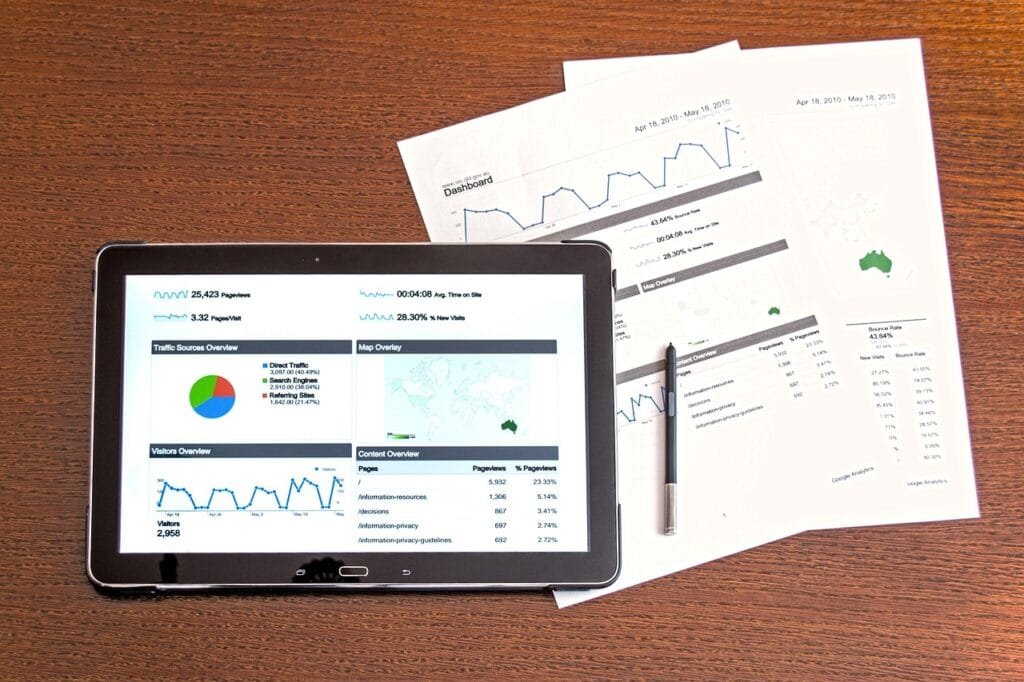In the digital age, where social media’s roar echoes across the globe, choosing the right management tool is not just a decision—it’s a strategy. Post Planner and Zoho Social stand out as two titans in the realm of social media management, each offering unique strengths to navigate the bustling social landscape. Whether you’re a small business owner looking to connect with your audience, a content creator aiming to streamline your workflow, or a marketing professional seeking to amplify your brand’s voice, the choice between Post Planner and Zoho Social could be the key to unlocking your social media potential. Let’s dive into the core of these platforms, starting with a crucial aspect that often serves as the backbone of any social media strategy
| Post Planner | Zoho Social |
|---|---|
 |  |
| G2 Score – 3.8 out of 5 stars | G2 Score – 4.6 out of 5 stars |
| TrustRadius Score – 7/10 | TrustRadius Score – 9.1/10 |
Content Scheduling and Automation
Timing is Everything
The ability to schedule content effectively and automate routine tasks can significantly amplify your social media presence, ensuring that your message not only reaches its intended audience but resonates with them. Let’s explore how Post Planner and Zoho Social approach this pivotal aspect.
Post Planner: Simplifying Content Scheduling
Post Planner is designed with simplicity and efficiency at its core, offering users an intuitive platform for scheduling content across various social networks. The tool shines in its ability to discover and suggest high-engagement content, which users can then schedule with ease. Post Planner’s content calendar provides a clear overview of your planned posts, making it easy to maintain a consistent presence on social media.
A distinctive feature of Post Planner is its focus on maximizing engagement through data-driven recommendations. The platform analyzes past performances to suggest the optimal times for posting, ensuring that your content has the best chance of capturing your audience’s attention. This streamlined approach to scheduling, combined with actionable insights, makes Post Planner a strong contender for those who prioritize engagement and simplicity in their social media strategy.
Zoho Social: Advanced Scheduling with Robust Automation
Zoho Social takes content scheduling and automation to the next level, offering a comprehensive suite of tools tailored for businesses and agencies managing multiple brands. The platform’s robust scheduling capabilities allow for detailed planning, with features that include bulk scheduling, a customizable content calendar, and the ability to preview posts before they go live. Zoho Social’s strength lies in its versatility, catering to the diverse needs of its users with a range of scheduling options.
In addition to its scheduling prowess, Zoho Social offers advanced automation features that streamline workflow and enhance productivity. The platform’s SmartQ feature, for example, suggests the best times to post based on when your audience is most active, taking the guesswork out of scheduling. Moreover, Zoho Social integrates seamlessly with other Zoho products and various third-party applications, enabling a cohesive approach to not just social media management but overall digital marketing.
Analytics and Reporting
Unlocking Insights for Strategic Growth
In the realm of social media management, analytics and reporting are not just features; they’re the compass guiding your strategy, offering insights into audience behavior, content performance, and overall engagement. Let’s delve into how Post Planner and Zoho Social equip you with the data you need to refine your approach and amplify your social media impact.
Post Planner: Streamlined Insights for Informed Decisions
Post Planner aims to simplify analytics, providing users with straightforward insights into content performance and audience engagement. The platform focuses on delivering essential metrics that allow for quick assessment of what’s working and what’s not. This approach is especially beneficial for small businesses and individual creators who need to make informed decisions without getting lost in overly complex data.
A notable aspect of Post Planner’s analytics is the emphasis on content effectiveness, with metrics designed to evaluate the reach, engagement, and overall impact of your posts. By highlighting top-performing content and identifying patterns in audience interactions, Post Planner helps users hone their content strategy to better align with their audience’s preferences.
Zoho Social: Comprehensive Analytics for Depth and Detail
Zoho Social offers a more comprehensive suite of analytics and reporting tools, designed to provide in-depth insights into every facet of your social media presence. The platform caters to businesses and agencies looking for detailed data analysis, with features that include audience demographics, engagement trends, and competitive analysis. Zoho Social’s analytics are robust, enabling users to drill down into the specifics of their social media strategy and make data-driven adjustments.
One of the strengths of Zoho Social’s analytics is the integration with the Zoho ecosystem, allowing for a holistic view of your digital marketing efforts. This interconnectedness enables users to correlate social media performance with other marketing activities, offering a broader perspective on their overall strategy.
Community Management and Engagement
Building Relationships on Social Media
Effective community management and engagement are pivotal for nurturing a loyal audience, sparking meaningful conversations, and enhancing brand visibility on social media. How Post Planner and Zoho Social facilitate these interactions can significantly impact your strategy’s success.
Post Planner: Focused on Content to Drive Engagement
Post Planner, with its content-centric approach, indirectly supports community management by prioritizing the discovery and scheduling of engaging content. The platform operates on the premise that high-quality, relevant content is the key to stimulating audience interaction and fostering a vibrant community. While direct community management features might not be as prominent, Post Planner equips users with the tools to consistently deliver content that resonates with their target audience, thereby encouraging comments, shares, and likes.
The platform’s strength lies in its ability to identify potentially viral content and suggest optimal posting times, indirectly supporting community engagement by ensuring that your posts have the best chance of being seen and interacted with by your audience. However, users looking for direct engagement tools, such as comment management or automated responses within the platform, may find Post Planner’s offerings in this area more limited.
Zoho Social: Integrating Direct Engagement Tools for Comprehensive Community Management
Zoho Social takes a broader approach to community management, integrating direct engagement tools within its platform to help brands actively interact with their audience. Features like real-time comment and message management allow users to respond promptly to their community, directly from the dashboard. This capability is crucial for maintaining an active and responsive social media presence, where timely interactions can significantly influence audience perception and engagement levels.
Moreover, Zoho Social provides monitoring tools that enable brands to track mentions, keywords, and hashtags, ensuring that they’re always in the loop about conversations relevant to their niche. This comprehensive approach not only facilitates direct engagement but also helps brands stay informed about industry trends, audience sentiment, and potential opportunities for engagement or content creation.

Related: Check out our free SEO suite

Integration Capabilities
Expanding Your Social Media Toolkit
In a landscape where digital marketing strategies encompass a wide array of activities—from email marketing and customer relationship management (CRM) to analytics and content creation—the integration capabilities of your social media management tool can dramatically impact its effectiveness and efficiency.
Post Planner: Streamlining with Essential Integrations
Post Planner focuses on providing essential integrations that support its core functionality: discovering and scheduling high-engagement content. While it may not boast an extensive list of third-party integrations compared to some other platforms, Post Planner ensures that its users have access to the tools most directly relevant to content planning and performance analysis.
Integrations with major social media platforms are a given, allowing users to manage multiple channels from a single dashboard. Additionally, Post Planner’s ability to integrate with content creation tools like Canva enhances the content preparation process, enabling users to design visually appealing posts without leaving the platform. This streamlined approach to integrations reflects Post Planner’s focus on simplicity and efficiency, ensuring that users can easily connect to key services without navigating a complex web of third-party tools.
Zoho Social: A Comprehensive Integration Ecosystem
Zoho Social, part of the larger Zoho Suite, benefits from deep integration with a broad ecosystem of Zoho applications, from Zoho CRM to Zoho Campaigns, offering users a seamless experience across their marketing stack. This integration extends the functionality of Zoho Social beyond mere social media management, enabling businesses to leverage a holistic view of their marketing efforts and customer interactions.
Beyond the Zoho ecosystem, Zoho Social offers integrations with other essential marketing tools and services, enhancing its utility as a comprehensive marketing platform. These integrations facilitate a range of activities, from capturing leads generated on social media to analyzing web traffic and behavior resulting from social media campaigns. The platform’s emphasis on integration reflects a commitment to providing a versatile tool that can adapt to the diverse needs of modern digital marketers.
Pricing and Plans: Balancing Cost with Value
The cost of a social media management tool is a critical consideration for any business, large or small. Balancing the budget with the need for advanced features, scalability, and support can be challenging. Here’s how Post Planner and Zoho Social stack up in terms of their pricing structures and the value they offer.
| Post Planner | Starting at $3 per month (billed annually), designed for individuals, offering up to 3 social accounts and 30 posts per day. At $11 per month (billed annually), for up to 10 social accounts and 100 posts per day, including more advanced features. Starting at $24 per month (billed annually), targeting small businesses, with up to 25 social accounts and 500 posts per day. |
| Zoho Social | Standard Plan: Starting at $10 per month (billed annually) for 1 brand (7 channels) and 2 team members, including basic publishing and monitoring features. Professional Plan: At $30 per month (billed annually), adding more advanced features like the bulk scheduler and custom reports for 1 brand. Premium Plan: Starting at $40 per month (billed annually), for 1 brand with additional features like ad integration and advanced analytics. Agency Plan: At $200 per month (billed annually), managing up to 10 brands, designed for agencies and larger teams. Agency Plus Plan: Starting at $300 per month (billed annually), with the capacity to manage up to 20 brands. |
Post Planner: Affordable Efficiency
Post Planner aims to provide an affordable solution for individuals and small businesses looking to enhance their social media presence without breaking the bank. The platform offers a tiered pricing structure that starts with a very accessible entry-level plan, designed to cater to the basic needs of content scheduling and discovery. As you move up the tiers, additional features become available, including more posts per day, additional social profiles, and advanced analytics.
What makes Post Planner appealing, especially to budget-conscious users, is its straightforward approach to pricing. Each plan is clearly outlined, with the features and limitations easy to understand, ensuring that users can select a package that best fits their needs without worrying about hidden costs or unnecessary complexities.
Zoho Social: Comprehensive Plans for Diverse Needs
Zoho Social caters to a wider range of users, from individuals and small businesses to large agencies and enterprises, with a pricing structure that reflects this diversity. The platform offers several plans, each designed to meet the varying needs and scales of social media management activities. Zoho Social’s pricing includes options for those who need basic scheduling and analytics features, as well as more advanced plans that offer team collaboration tools, custom reporting, and integration with the broader Zoho ecosystem.
A notable aspect of Zoho Social’s pricing is the inclusion of a free plan, which provides basic functionality for individuals looking to manage a single brand. This option is an excellent way for users to experience Zoho Social’s interface and core features before committing to a paid plan. For businesses and agencies requiring more robust capabilities, Zoho Social’s higher-tier plans offer significant value, with comprehensive features that justify the investment.
Conclusion
Post Planner emerges as a tool designed with a sharp focus on maximizing the impact of your content. It caters especially well to individuals and small businesses aiming to enhance their social media presence through strategic content discovery, scheduling, and performance insights. Post Planner’s streamlined approach is ideal for those who prioritize ease of use, efficiency, and effectiveness in their social media management tool, offering essential integrations and focused analytics to keep users engaged and informed.
Zoho Social, on the other hand, stands out as a comprehensive solution that extends beyond social media management to integrate deeply with a broader digital marketing strategy. Its strength lies in its extensive analytics, advanced community management features, and robust integration capabilities, particularly within the Zoho ecosystem. This makes Zoho Social a powerful ally for businesses and agencies looking for a versatile platform that can handle complex, multi-faceted marketing strategies across multiple social media channels.
Read Next:
- Advanced Google Analytics Tracking for Financial Websites
- Multilingual SEO for Global Banking Brands
- The Challenges of Multi-Country SEO in Financial Services
- Geofencing and Its SEO Implications for Local Banks
- 31+ Top Social Media Management tools Compared! (2023)






















Comments are closed.